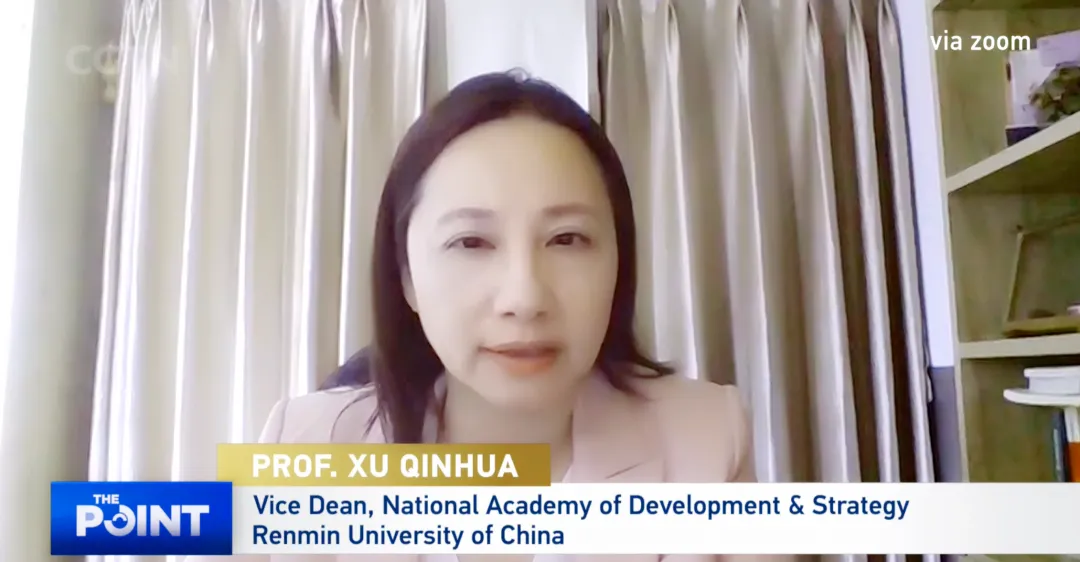 Research Update
Research Update
03
November
Vice Dean at the National Academy of Development and Strategy, Renmin University of China, Professor Xu Qinhua was interviewed by Liu Xin (CGTN the Point with Liu Xin) on Oct. 28 about the 2025 APEC meeting, President Xi’s state visit, and China-US relations.
The discussion was centered around enhancing cross-border infrastructure to counter protectionism and supply chain fragmentation. Key priorities included streamlining cross-border logistics, harmonizing data governance standards, and expanding people-to-people exchanges. The second topic on the agenda was driving technological innovation, which strongly emphasized the role of AI.
APEC 2025 faces multiple challenges. While APEC’s ambitions are bold, translating them into action will require overcoming the global trend on geopolitical tensions and de-globalization, as well as disagreements on trade rules, climate financing, and technology sharing. A successful result needs to include binding agreements on supply chain resilience, quantifiable emissions targets, and transparent implementation timelines.
President Xi has proposed the Global Governance Initiative to provide a China solution to restore the existing fragmented international cooperation framework, and ROK shares the same interest with China. A healthy and steady China-ROK relations is in the interest of the people from both countries. The two sides are expected to further tap the potential of economic and trade cooperation, especially in emerging fields such as digital economy and artificial intelligence. China and ROK will also further promote exchanges and cooperation in culture, education, tourism and other fields, so that the root of people-to-people and cultural exchanges will be deeper.
Several rounds of trading negotiation have been taken place on the China-US trade relation. A potential Trump-Xi meeting will accelerate the negotiation process, as APEC’s major role is promoting economic cooperation instead of solving political issues. It is commonly agreed that the involvement of the United States is vital to a feasible Gyeongju Agreement. However, some of Trump administration’s foreign policies are worrisome, which will most likely hinder the joint effort to create a closer and more equal Asia-Pacific.
https://www.cgtn.com/tv/replay?id=CJdJdIA